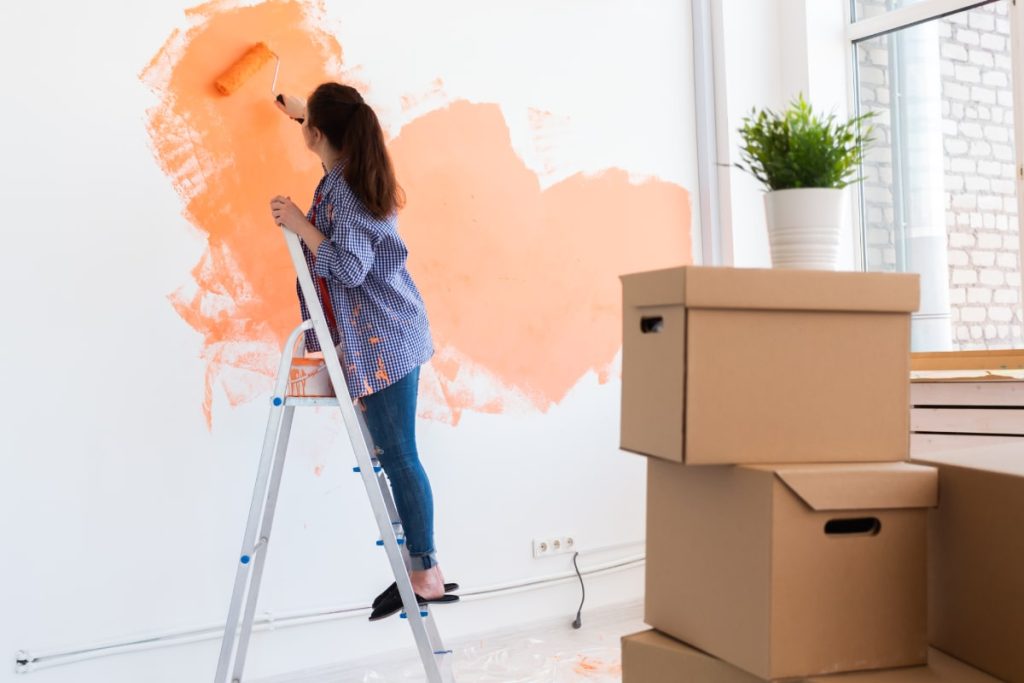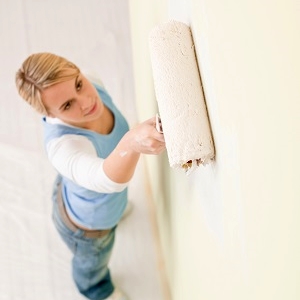
If you know you’re selling your older home in the near future, you may be wondering if you need to renovate first as part of your selling strategy. And if so, how much you should spend? You may have heard that “great kitchens sell homes”, “curb appeal is essential”, or about the popularity of spa bathrooms.
While these things are generally true, whether or not you get your investment back on a remodeling project when you sell will depend on a lot of circumstances. There are renovations that pay, and those that will add some value, and those to avoid like the plague.
The key lies in the difference between what homes for sale buyers like and what they’ll actually pay more for.
Renovations That Always Pay
These are the renos that can make the difference between actually selling at all and not selling. You may not get more money, but if you don’t do them, you may end up having to drop your selling price. These could be the difference between offering a “move in ready home” or a “fixer upper home”, so it’s best to ensure that you at least have certain renovations in your home before selling.
1. General Repairs
A good rule of thumb is to fix anything broken. If someone tours your home and sees any obvious repairs, they may lose interest in your home entirely, or haggle down the price on the basis of it being a fixer upper property.
It doesn’t matter if the broken item is actually a minor fix. Buyers find damage scary because that ripped screen or cracked floor tile may mean there are more serious issues hiding in the walls. Also, many buyers, especially first timers, don’t know enough about home repair to tell if something’s major or minor.
2. Fresh Paint in Neutral Colours
If you haven’t painted in a few years, or have a highly creative sense of colour, it’s worth it to paint your home in a light, neutral colour like off-white, beige, or grey. A fresh coat of paint makes a huge difference, and more potential buyers will see the home value.
Best of all, painting your interior walls is one of the easier DIY projects, and it’s affordable even if you hire professionals.
3. Decluttering and Professional Cleaning
While not technically renovations, the importance of these steps cannot be underestimated. They help make your home as fresh and new as possible, even if it doesn’t make sense to renovate. And, again, these won’t cost much.
You can learn more about the essentials of how to get your home ready to sell here.
Renovations That Can Help – But Won’t Always Pay Off
Whether or not these renovations pay off will depend on two things:
- What’s the overall standard for the rest of the neighbourhood, and for homes in a similar price range? Don’t over-renovate.
- How seriously out of date is what you have in your home now?
To find out if these renos are worth your while, look at homes of a similar style in your neighbourhood and in comparable neighbourhoods. Get an idea of what the minimum standards are and make your decisions from there.
As a rule of thumb, the more expensive your home already is, the more likely a renovation will be worth it. If someone’s going to be buying your home for $700,000, for example, they’re going to expect a really nice kitchen. Someone whose budget is around $250,000 is going to expect to make some compromises and deal with outdated cabinets.
Better yet, do renovations like these to your own home when you buy it. That way you’ll get the styles and colours you want, and you’ll get to enjoy the results as long as you own your home.
1. Kitchen Overhauls
This is a tough one, because almost everyone really does want a great new kitchen with an up to date look and new appliances. But styles are always changing, and people’s tastes differ. Your “farmhouse chic”, for example, may be someone else’s old-fashioned eyesore.
In general, cosmetic upgrades like updated taps and backsplashes can pay off, but you won’t see the real estate ROI for a full rebuild with new counters and cabinets.
2. Upmarket Bathrooms
Bathroom renovations face the same issue as kitchen renos: you’ll never really see all the money you put into them. Unless it’s truly frightening, make sure it looks spotlessly clean, but otherwise stick to cosmetic fixes.
The other big problem with bathroom renos as a presale value-builder is that some people want showers and others want bathtubs. A lot of bathrooms are not large enough for separate areas for both.
3. Gorgeous, Intensive Landscaping
People like looking at full landscaping. Not a lot of people have the gardening skills or the desire to maintain it.
Gardening is often sweaty, backbreaking work, and buyers know that. If you’re planning to sell, keep the lawn in good shape, maybe add a bed or two around the house if you can see the foundation, and set out some containers in the front. Don’t redesign with a lot of new plantings – it won’t mature for years, anyway.
5. Invisible Essentials
These are the fundamentals for every home: roofing, plumbing, electrical, and heating and cooling. People want functional, and they certainly don’t want to see shingles blowing away in the wind, but they don’t always pay full value for the costs to do these projects.
You need a working furnace, and the roof needs to look like it’s actually keeping the water out of the house. If it needs to be done, get it done, but don’t expect to add the cost to the selling price of your home.
6. New Hardwood Floors
We get it: everyone hates parquet, and it’s everywhere in Ottawa because of all the 1970s builds. Gorgeous new hardwood floors will help you sell your home – but you won’t necessarily get dollar-in dollar-out return on your investment, unfortunately, if you’re replacing existing parquet or hardwood. This is one of those long term renovation projects that might be better suited for your own new home when you move in.
The story changes entirely if you’re removing wall-to-wall carpeting, however. It’s often a great move for homes of medium to high value.
Renovations to Avoid
1. Swimming Pools
Creating a place to swim in Ottawa sounds like so much fun, doesn’t it? They can be – if they belong to someone else.
A swimming pool will actually reduce the value of your home because they’re expensive and a pain to maintain. They are also a safety risk. These days, most buyers look at a swimming pool and see a lawsuit – or worse, a tragedy – especially if they have small children.
2. Wall to Wall Carpeting
Many buyers don’t like wall to wall carpeting because it’s impossible to keep clean; they prefer hardwood and tile. Some buyers, however, actually like it on the second story, especially in bedrooms.
If you have existing carpeting that’s shabby and stained, get it professionally steam cleaned and try to leave it at that. Replace it if it’s seriously scary.
But don’t cover hardwood floors with new carpeting – if hardwood floors are in rough shape, have them refinished.
3. Tailoring Rooms to Specific Functions
Home theatres, built-in bars, and garage mahals may appeal to some buyers, but they’ll also turn off others. They’re not an investment to make if a sale is on the horizon.
4. Additions
Adding an extended room or an additional story to your home almost never pays off when you’re trying to sell. These types of home renovations are only a good investment if you’re staying long term.
5. Landscaping
Landscaping is very dependent on personal taste. While you might love a huge vegetable garden, others might prefer a neat, manicured lawn. Your home’s yard should be presentable—mow the lawn, trim the shrubbery, and declutter and leaves and detritus blown in—but there’s no need to go all out on an ornate landscape. A few potted plants around the walkways won’t be amiss, but anything that looks like it would take significant upkeep might even turn away potential buyers altogether.
6. New HVAC Systems
This is one of those expensive-yet-practical upgrades that unfortunately won’t reap the rewards of a higher selling price. Potential buyers don’t necessarily want to pay for home improvements that they can’t see, or that they didn’t choose for themselves.
Instead of overhauling your HVAC system, simply give the existing setup a tuneup, and repair any obvious flaws that need fixing.
7. Expensive Appliances
These items are used almost daily by homeowners, and if you’re going to be spending money on them, buyers would likely prefer to choose their own.
If your current appliances are in good condition, just ensure they’re clean and showable for an open house.
Learn more about home improvements that don’t add value to your home>
Play it Safe, and Appeal to the Average Buyer
As you can see, there are a lot of variables that can make it difficult to decide what’s worth upgrading on your home and what’s not. When it comes to fixing up your house, it’s important to have a feel for all the other properties competing against yours on the seller’s market.
When you’re not sure, get the advice of an experienced real estate agent that knows what’s selling on the market right now. The Paul Rushforth team sells hundreds of homes every year, and our team of over 30 specialists work together to ensure your home sells as fast as possible and for the best possible price. We offer free home evaluations that are based on real market data.







